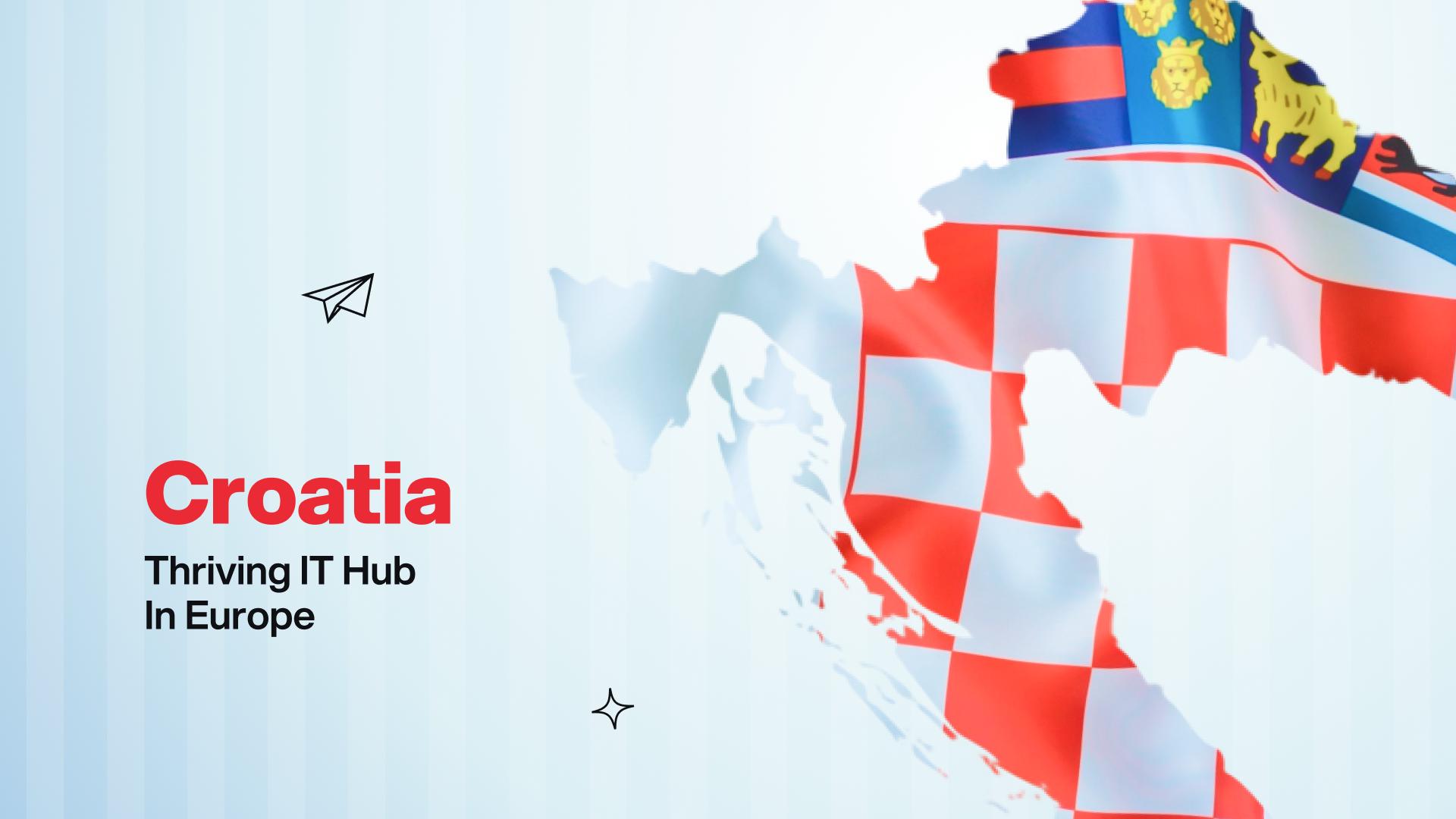Post Activity
 180
180
Table of Content
Share This Post
Table of Content
Canadian companies’ outsourcing is a calculated decision rooted in growth, agility, and innovation. As tech demands surge and local capacity tightens, outsourcing becomes a core pillar of scalable operations.
Canada’s technology sector is thriving, yet its developer labor force cannot keep pace with the needs of digital transformation. As of 2023, the ICT sector contributed $125.5 billion to national GDP (5.7%), employing over 812,636 professionals. 596,295 of these people are in software and computing services.
The economy of Canada at a glance
| Gross Domestic Product | ||
| Annual GDP | USD 2.14 Trillion (2023) | |
| GDP Per Capita | USD 53,431 (2023) | |
| Income Category | High Income (2025) | |
| People | ||
| Population | 40 Million (2025) | |
| Literacy Rate | 99% (2024) | |
| IT Sector | ||
| IT Services Market Size | USD 32.4 Billion (2025) | |
| IT Outsourcing Market Size | USD 13 Billion (2025) | |
| Registered Software Companies | 45,000+ (2023) | |
| Business Environment | ||
| Ease of Doing Business | Score: 80 | Rank: 23 (2020) | |
| Political Stability Indicator | Percentile Rank: 76 (2023) | |
| Corruption Perceptions Index | Score76/100 | Rank: 12/180 (2023) | |
Despite 63,250 annual STEM graduates and nearly 25,000 international student graduates, the country faces a projected shortage of 250,000 tech professionals by the end of 2025. Add to that developer salaries ranging between $66,000 and $88,000 USD, and outsourcing becomes a practical solution for talent acquisition and cost efficiency.
Key Services Companies Choose to Outsource
Understanding why Canadian companies outsource requires looking at what they choose to outsource and why. The decision is strategic: retain IP-heavy tasks in-house and delegate the rest to trusted global teams.
Commonly outsourced services include:
- Custom software development and mobile app development
- Software testing and QA services
- DevOps and cloud migration
- AI-powered app development and data analytics
- IT support, customer service, and BPO functions
- Database systems and legacy modernization
These services are outsourced not only to lower outsourcing costs, but also to increase access to niche expertise, support 24/7 delivery models, and accelerate time-to-market for software solutions.
Looking for IT Outsourcing Firms?
Discover top-rated outsourcing partners with proven expertise across web, mobile, and enterprise software development.
Outsourcing Models That Canadian Firms Use
IT outsourcing in Canada takes multiple forms. Most firms combine several models to fit budget, delivery speed, and control requirements:
- Managed Services: Best for infrastructure, cybersecurity, and long-term cloud operations. Offers predictability and lower operational risk, though control is reduced.
- Staff Augmentation: Used for agile squads and short-term boosts. This model allows high visibility and flexibility but relies heavily on internal project managers and team leads.
- Offshore Development: Countries like India and Ukraine provide strong software engineering at lower labor costs. A good fit for backend development and QA, though time zone gaps can slow feedback loops.
- Nearshore Outsourcing: Destinations like Colombia, Brazil, and Poland align better with Canada’s time zones. Strong English proficiency, cultural compatibility, and technical education systems make these regions ideal for near-real-time collaboration.
- Hybrid Models: The most popular option. Strategic work remains local, while delivery functions are distributed across nearshore and offshore partners to balance cost, speed, and control.
Global Destinations That Deliver Value
To understand why Canadian companies outsource, we must look at where they send their projects and what strategic value they receive in return.
Latin America (Argentina, Brazil, Colombia, Mexico)
- Real-time collaboration due to time zone compatibility
- Strong communication skills and agile workflows
- Competitive software development rates
Eastern Europe (Poland, Ukraine, Romania)
- Advanced technical education and software engineering expertise
- High software quality standards and stable legal frameworks
- Ideal for DevOps, AI, and product engineering
Asia-Pacific (India, Philippines)
- Proven track record in IT services, mobile development, and call center support
- Unmatched labor cost efficiency and large tech talent pools
- Ideal for support functions, legacy modernization, and QA services
Canada’s stable political environment (index: 76.3), data adequacy status with the EU, and strong IP protection laws further support international collaboration.
Ready to Build Your Team?
Let’s create together, innovate together, and achieve excellence together. Your vision, our team – the perfect match awaits.
Challenges That Influence the Outsourcing Decision
Understanding why Canadian companies outsource also means acknowledging the domestic challenges they’re solving:
Tech Talent Shortage
A shortage of qualified software developers, especially in AI, cybersecurity, and cloud computing, has made outsourcing essential to meet delivery demands.
Rising Labor Costs
Software development rates in Canada are among the highest globally. Outsourcing to Eastern Europe or Asia offers 50–70% savings.
Time-to-Market Pressures
Speed is critical in competitive technology markets. Real-time collaboration with nearshore partners shortens product cycles and supports agile development.
Infrastructure Gaps
Despite progress, Canada’s digital public infrastructure ranks 32nd globally. Outsourcing helps fill those capability gaps with advanced tools, platforms, and global best practices.
Compliance and Security Concerns
Outsourcing partners can provide built-in compliance with HIPAA, PIPEDA, and GDPR. Leading outsourcing firms also invest in strong cybersecurity frameworks and software quality assurance protocols.
Innovation Demands
Canadian companies are racing to modernize legacy systems and adopt AI-driven personalization. Global vendors bring niche expertise and AI development accelerators that are difficult to replicate in-house.
Strategic Programs and Ecosystem Support for Outsourcing
The Canadian government actively supports digital transformation through initiatives like:
- Canada Digital Adoption Program ($1.4 billion)
- Digital Skills for Youth (coding and reskilling)
- Accessible Technology Program
- AI investment of $2.4 billion announced in 2024
- Global Innovation Clusters (nearly $2 billion for tech collaboration)
These programs reduce the risk of outsourcing, foster global R&D collaboration, and fuel growth in the IT software outsourcing market.
Emerging Trends Shaping the Future
The future of IT outsourcing in Canada is being shaped by a few key trends:
- Growing demand for AI-powered app development and AI-driven personalization
- Increase in nearshore collaboration with Latin American and Eastern European partners
- Expanded use of cloud solutions and DevOps services through global teams
- Tighter alignment on ESG standards and green IT metrics for outsourcing partners
- Deeper integration with tools for real-time collaboration and agile software development
Canada’s startup hubs like Toronto, Vancouver, and Montréal will continue to integrate outsourcing as a means to grow faster, scale leaner, and focus on high-value innovation.
Final Thoughts on Why Canadian Companies Outsource
Canadian companies’ outsourcing decision is ultimately about maintaining competitiveness in a global digital economy. Outsourcing software development, IT services, and support functions allows Canadian firms to stay agile, optimize costs, and deliver innovation at scale.
Find Your Perfect Software Outsourcing Partner
Unlock a world of trusted software outsourcing companies and elevate your business operations seamlessly.






